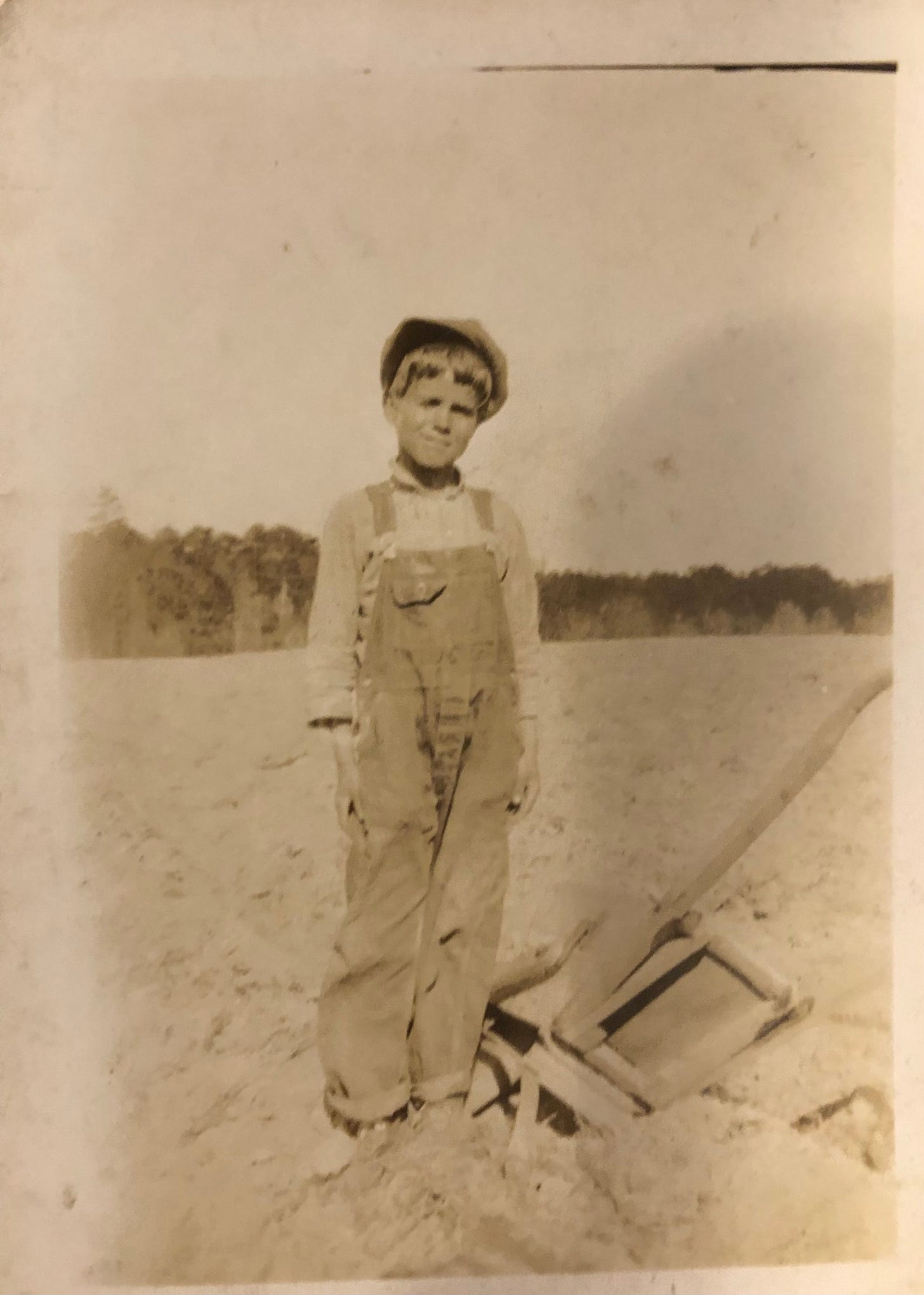No one ever knew my grandfather earned three Bronze Stars during the War. No one ever knew that his cavalry regiment fought at the vicious battle of St. Lô, made a historic dash across France, liberated Belgium, crossed the Roer river in Operation Grenade, crossed the Rhine in Operation Plunder, and linked up with the Russians in Wittenberg, home of the Protestant Reformer, Martin Luther. Without a little curiosity, that memory would be lost forever.
I uncovered secrets. I uncovered memories.
Last spring, I began researching as much as I could about my maternal grandfather. He died three years before I was born. Unfortunately, because of that, he was always a distant figure to me. My curiosity got the best of me with this figure, and I’m glad it did. Through my research and poking through old family figures, he no longer was that distant figure, but he became close to me. He became someone I understood. He was no longer the man in the picture hanging on the wall. He was my grandfather.
The Work I Have Done
I have scanned all the letters we have of him writing to his younger brother and father during the War. They are organized by year, and each scan is labeled by date. Not only are the letters scanned but also transcribed because of his poor penmanship (he only completed the 6th grade). In one letter, he writes to his younger brother that their older sister sent "the worst letter I have ever read." It was amusing to read over the span of four letters about him harassing his younger brother to send him a radio.
In conjunction with the letters, I reached out to NARA (the National Archives and Records Administration) for military records. After two months, they were only able to give me his enlistment and discharge papers. There was a major fire in the 1970s, and millions of records were lost. On the scans they sent me, you can see the right edges were burned during the fire. The record that would have told us what he did to earn all three Bronze Stars was lost in the fire. These records, along with the scans of the letters and the transcripts, I sent to two of my cousins so that they would have those copies forever.
In addition to the military records, I found out which cavalry regiment he was in. So I began to research that regiment, grasping at anything I could find. During this frenzy, I found a book on eBay about his regiment during the entirety of the war that could have been lost to history because of its obscurity and rarity. I could not have bought it any faster. This gave insight into how tough of a man he was.
One of my aunts told me a story that few know. When my grandfather was growing up in this small Southeast Alabama town during the Great Depression, he enjoyed whistling. He enjoyed it so much that he would stand in the town square and begin whistling. Not before long, people would gather around just to hear him whistle.
The Work I Will Do
Going forward, I plan to sit down with my mother and her sisters, together and separately, and ask them to tell me all they can remember about my grandfather. And not only him, but also my grandmother and all of their aunts and uncles as well. This family history book will be organized into a family tree, important locations, stories, and biographical sketches. I will reach out to as many of my first cousins once removed as I can for information about their parents as well as my grandparents.
Memory is an interesting thing. Without memory, we begin to lose sight of ourselves and everything around us. Our identity flows from what we remember. Our remembrance connects us to the past and gives a heritage to the future. Remembrance gives a communion between the past, the present, and the future.
Memory has given me a sense of place, a sense of place has given me understanding, understanding has given me love. As William Faulkner once said:
Memory believes before knowing remembers. Believes longer than recollects, longer than knowing even wonders.
Remember your people.






